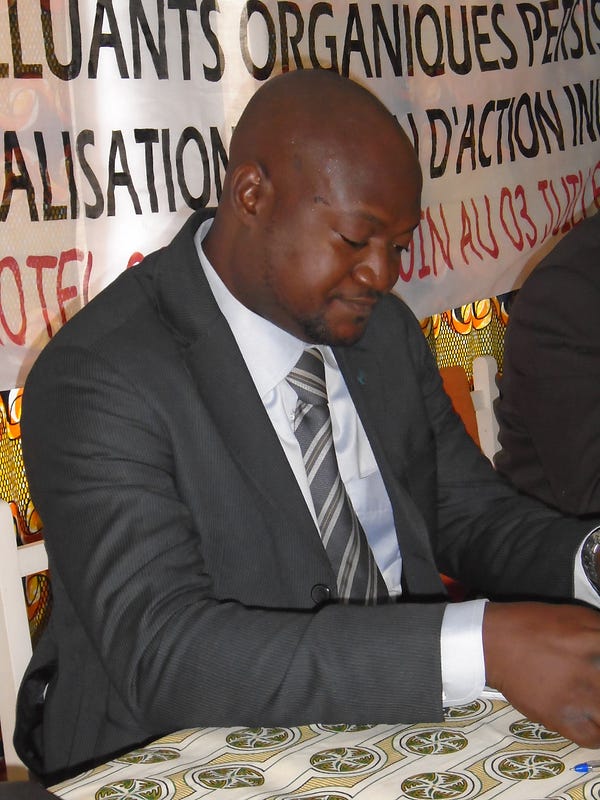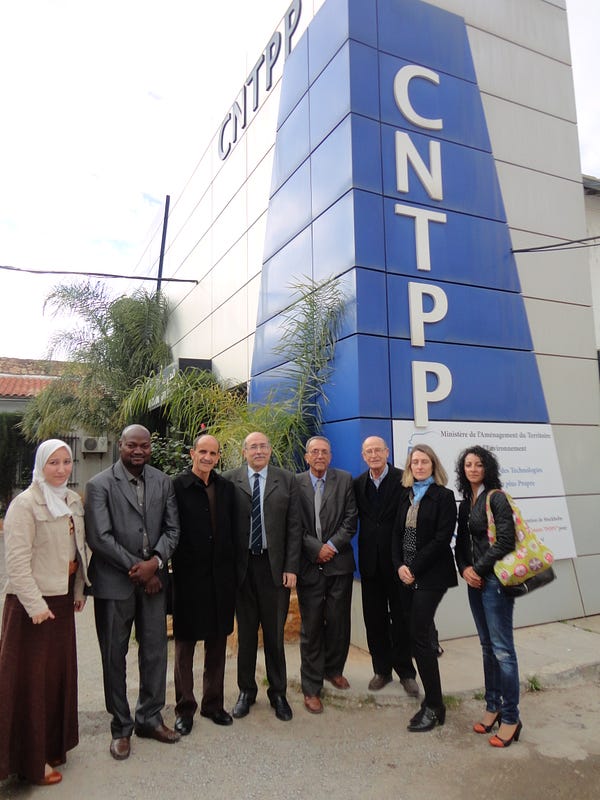Born in Togo, 39 years old Bontiébite Badjare was trained as an agricultural engineer at Lomé's university in 2004, following the example of his older brother. He first obtained a position as an assistant at the International Center for Soil Fertility. A few years later, he worked for the Togolese Agricultural Research Institute, before he resigned to become an independent consultant, working among others for the Food and Agriculture Organization of the United Nations. This is where he first looked into the impact of chemicals on the environment, a field on which his expertise is much appreciated today.

He was part of a pilot project aiming at establishing a national register of Pollutant Release and Transfer, on behalf of the Ministry of Environment. Since 2013, he was hired by the United Nations Industrial Development Organization and United Nations Development Programme to support several African countries in their process of updating their national implementation plan for Stockholm Convention on Persistent Organic Pollutants. To this day, some twenty West and East African countries have asked for his services.
2016 was the year the Togolese government applied to signed Minamata Convention on mercury. In need of an expert able to assist the Ministry's delegate, a lawyer by training and thus unfamiliar with persistent organic pollutants issues, Mr. Badjare was an obvious choice for that year's Mercury Inventory Workshop in Barcelona. Mercury pollution is indeed a very concerning health issue in Togo, directly linked to problematic practices in waste disposal and, most of all, to traditional small-scale gold mining. It is believed that Togo could be having large gold resources, many of whom are still to be discovered.
“Compared to our bigger West African neighbors like Burkina Faso, Mali or Guinea, Togo is a relatively small country”
Says Bontiébite Badjare, “but it nonetheless is part of the gold rush they experience, although on a much smaller scale. Gold mining is thus largely a small-scale industry, and independent gold diggers are relying heavily on mercury, whereas larger companies don't. It is used as an amalgam to recover fine gold. People first dig a hole and rocks are brought back to the surface to be ground into a fine paste. Then they mix it with mercury with their bare hands. It is then heated on an outdoor fire to evaporate the mercury.” The whole area is quickly saturated with this pollutant, that can have toxic effects on the digestive and immune systems, the lungs, kidneys, skin and eyes.
Burning of waste in open air and coal combustion from power plants are the other main sources of mercury pollution in Togo, along with unrecycled fluorescent lamps and thermometers, all of which have been linked to a worrying lack of awareness among low-income populations. “People do not realize the dangers of mercury, and many are only thinking of gold mining, forgetting the impact of waste burning for example. There are also cultural practices and mistaken beliefs: I've seen people carrying mercury in amulets, around their neck or waist, because traditional therapists have told them it was useful against some illnesses.”

Barcelona's workshop has been a pleasant experience for Mr. Badjare, as it has deepened his skills and notions in his field of expertise. “I appreciated that my colleague from the Ministry acknowledged the need for help on the issues and allowed me to assist him. The workshop has also given me a better understanding of the release factors and reinforced my global methodology. I am no insider and I can't tell whether our government will allow more resources to train the new formators we need to raise awareness about the dangers of mercury. But I certainly will remain at their disposal if they need any help in this regard.”
“There is a tremendous work to be done, and we need to target influential individuals and institutions, as it is done to prevent excision on young girls. Our government is taken these matters seriously but it lacks the proper means of action. Some TV spots are aired, paid by either the State or NGO's. It all will take time and we will have to show patience. The schools have a major role to play, because children are fast learners on these matters and they can help their parents change their harmful habits. Besides, whenever you try to get people to change their ways and to forbid some old practices, you have to come with an alternative solution, and that's not something you can develop overnight.”

